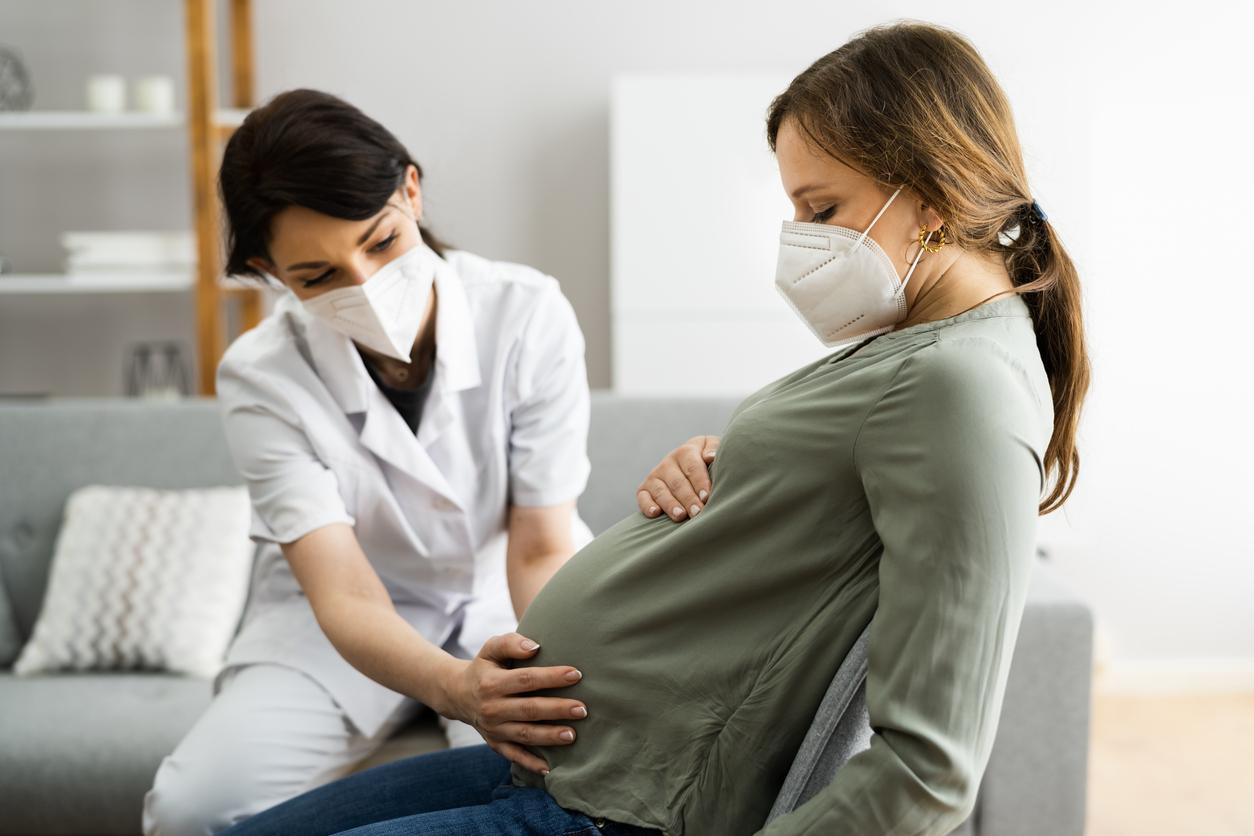New data from the RECOVERY trial show that women who contracted COVID-19 during pregnancy had a lower risk of developing long COVID, or post-acute sequelae of SARS-CoV-2 infection (PASC), than other women, according to a study in eClinicalMedicine.
The retrospective study from the National Institutes of Health (NIH) Researching COVID to Enhance Recovery (RECOVER) trial included women ages 18 to 49 years with lab-confirmed SARS-CoV-2 infection from March 2020 through June 2022 seen in 19 US health systems.
PASC was defined as symptoms identified 30 to 180 days post–SARS-CoV-2 infection. A total of 83,915 women with COVID-19 acquired outside of pregnancy and 5,397 women with COVID-19 acquired during pregnancy were compared and included in the final analysis.
The authors said this was the first study to compare long-COVID outcomes through the lens of pregnancy.
Overall, the authors found that non-pregnant women were older and had more comorbidities than pregnant women with COVID-19, which may have contributed to the findings that non-pregnant women were significantly more at risk for developing long COVID than were pregnant women.
15% lower risk of long COVID
Pregnant women had an incidence of PASC of 25.5% compared to 33.9% non-pregnant women, an adjusted hazard ratio (aHR) of 0.85 (95% confidence interval [CI], 0.80 to 0.91).
The cumulative incidence of PASC in the 180 days following the incident infection date was 30.8 per 100 people among those with COVID acquired during pregnancy compared with 35.8 per 100 people among those with COVID acquired outside of pregnancy, the authors said.
For pregnant women with COVID-19, the average gestational week at infection was 34 weeks, and the average week of delivery was 39 weeks. Hispanic women made up 27.8% of pregnant women with COVID, compared to 14.3% of non-pregnant women with COVID.
SARS-CoV-2 infection acquired during pregnancy compared with acquired outside of pregnancy was associated with a higher incidence of abnormal heartbeat, abdominal pain, and thromboembolism,
"SARS-CoV-2 infection acquired during pregnancy compared with acquired outside of pregnancy was associated with a higher incidence of abnormal heartbeat, abdominal pain, and thromboembolism," the authors wrote. Pregnant women with COVID were also more likely to be hospitalized during the acute phase of infection compared to non-pregnant women.
Non-pregnant women, however, were more likely to experience joint pain, sleep disorders, cognitive problems, difficulty breathing, brain dysfunction, hair loss, acute pharyngitis (throat infection), malnutrition, malaise and fatigue, and chest pain if they developed long COVID.
"The current findings further our understanding of PASC after acquiring SARS-CoV-2 infection in pregnancy to inform patient counseling and direct future research. Further prospective study is necessary to confirm these findings," the authors concluded.




















